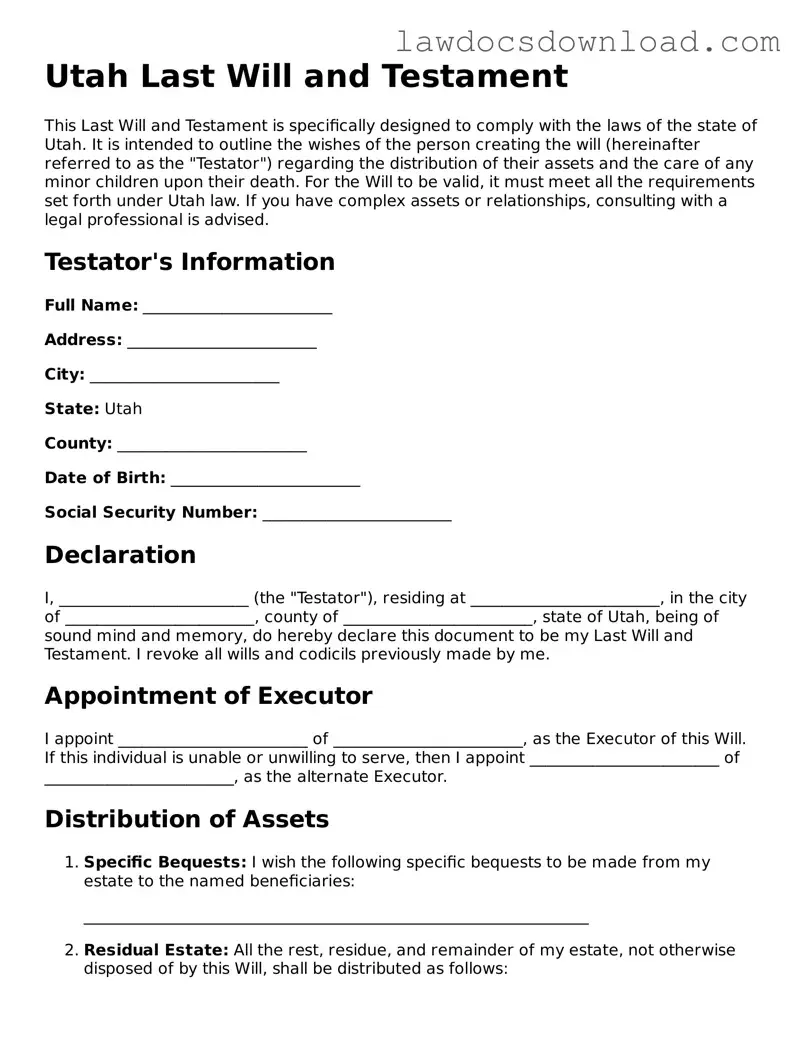Utah Last Will and Testament
This Last Will and Testament is specifically designed to comply with the laws of the state of Utah. It is intended to outline the wishes of the person creating the will (hereinafter referred to as the "Testator") regarding the distribution of their assets and the care of any minor children upon their death. For the Will to be valid, it must meet all the requirements set forth under Utah law. If you have complex assets or relationships, consulting with a legal professional is advised.
Testator's Information
Full Name: ________________________
Address: ________________________
City: ________________________
State: Utah
County: ________________________
Date of Birth: ________________________
Social Security Number: ________________________
Declaration
I, ________________________ (the "Testator"), residing at ________________________, in the city of ________________________, county of ________________________, state of Utah, being of sound mind and memory, do hereby declare this document to be my Last Will and Testament. I revoke all wills and codicils previously made by me.
Appointment of Executor
I appoint ________________________ of ________________________, as the Executor of this Will. If this individual is unable or unwilling to serve, then I appoint ________________________ of ________________________, as the alternate Executor.
Distribution of Assets
- Specific Bequests: I wish the following specific bequests to be made from my estate to the named beneficiaries:
________________________________________________________________
- Residual Estate: All the rest, residue, and remainder of my estate, not otherwise disposed of by this Will, shall be distributed as follows:
________________________________________________________________
Appointment of Guardian for Minor Children
If at the time of my death, I have minor children, I appoint ________________________ of ________________________, as Guardian of the person and estate of each minor child. If this person is unable or unwilling to serve, then I appoint ________________________ of ________________________, as the alternate Guardian.
Signatures
This Will was signed on the ______ day of ________________, 20____, at ________________________, city of ________________________, state of Utah, by ________________________ (the "Testator") as and for their Last Will and Testament, in the presence of us, who at their request, in their presence and in the presence of each other, have subscribed our names as witnesses hereto.
Testator's Signature: ________________________
Witness #1 Signature: ________________________
Print Name: ________________________
Address: ________________________
Witness #2 Signature: ________________________
Print Name: ________________________
Address: ________________________
Additional Clauses
Any additional clauses or special instructions can be added below:
________________________________________________________________
________________________________________________________________
This template is a helpful guide for creating a Utah Last Will and Testament. Individuals are encouraged to consult with a legal professional to ensure the Will complies with current Utah laws and meets their specific needs.

